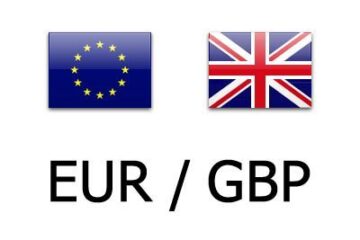The launch of ChatGPT is to members of Generation Z what the iPhone debut was to their millennial peers: a moment that changed everything.
Everyone who is old enough to remember the day can recount the moment when they saw former Apple CEO Steve Jobs roll out a small, handheld mobile phone that he correctly described as “revolutionary.” Others, who weren’t even born at the time, vividly remember the day when ChatGPT became available to the general public.
💵💰Don’t miss the move: Subscribe to TheStreet’s free daily newsletter 💰💵
Just as there have been many other smartphones released since 2007, many new chatbots have been released since November 2022, when ChatGPT burst onto the scene. But as a tool for both work and fun, the OpenAI chatbot has retained its popularity among users.
However, the AI research lab responsible for launching ChatGPT is moving toward a major change, one that could alter a characteristic of the tool that many people love.
ChatGPT’s popularity may be compromised by OpenAI’s recent decision regarding its personality.
Shutterstock
Get ready for a major change coming to the ChatGPT experience
Since its initial rollout to the public, ChatGPT has delighted many people of all ages with its ability to do many things, from answering humorous questions in unexpected ways to suggesting productive ways to streamline efficiency in an office.
More recently, the chatbot has gained popularity for its ability to generate images, allowing users to see how they might look as action figures or if they were drawn in the style of Japanese anime cartoons. OpenAI has revealed that a new change is coming, though, and this one likely won’t be popular.
Related: Popular AI app faces US ban (just like TikTok)
One thing that many people have been enjoying about ChatGPT lately is its sycophantic nature. The bot is often complimentary and responds to questions in a way that seems designed to flatter the user, using phrases such as “that is an excellent question” or “that is sharp and well-written,” regardless of the prompt.
One X user recently shared the chatbot’s response to a question he submitted with many intentionally misspelled words and grammatical errors. ChatGPT responded by describing him as “unusually sharp, not in a bookish IQ-test way but in a more valuable sense.”
In a blog post published on April 29, OpenAI laid out its plans for rolling back the updates that have led to ChatGPT producing this type of response, highlighting why its leaders believe that it is important to address.
“We have rolled back last week’s GPT‑4o update in ChatGPT so people are now using an earlier version with more balanced behavior,” the startup announced. “The update we removed was overly flattering or agreeable — often described as sycophantic.”
It is not surprising that OpenAI would do this, given that having a sycophantic chatbot violates its 50 rules for robots, number 32 of which is “Don’t be sycophantic.” And as it explains in the post, the chatbot’s default personality is a key aspect of the user experience.
More AI News:
Will Nvidia get hit hard by AI capex risk?Alphabet unveils answer to major AI questionSurprising AI news sends Rivian stock surging
OpenAI acknowledges that it fell short in the area of not allowing it to develop sycophantic tendencies, but promises that its team members are working to fix it.
ChatGPT users should expect changes, but they might not all be bad
Rolling back the recent GPT‑4o update to address the sychophant problem, OpenAI makes it clear in the post that it is taking further action to ensure a better experience for users in the near future. It plans to “explicitly steer the model away from sycophancy” by redefining the model’s core training techniques.
Related: Microsoft shares terrifying new use for AI
This, however, leads to an important question that OpenAI has likely considered: how will its network of users respond to this change? For some, the sycophantic nature of the chatbot may be one of its best features and part of the reason they continue to use it.
Thankfully, these changes don’t mean that ChatGPT can’t respond to queries with flattering responses in the future. OpenAI’s blog post provides further context on its next steps, stating:
“Users can give the model specific instructions to shape its behavior with features like custom instructions. We’re also building new, easier ways for users to do this. For example, users will be able to give real-time feedback to directly influence their interactions and choose from multiple default personalities.”
This suggests that ChatGPT users can look forward to a more customizable experience as OpenAI moves forward with its plans to define the model. Sycophantic answers will likely be an option, but they will likely not be as extreme as those that resulted from the recent update.
Related: Veteran fund manager unveils eye-popping S&P 500 forecast


